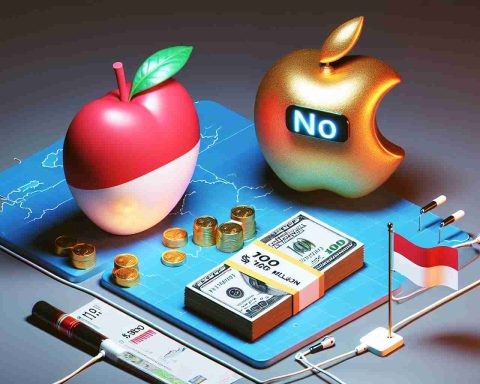In a decisive maneuver, Nokia Corporation has rolled out a significant share buyback initiative, signaling a sharp interest in consolidating its financial strategies. The Finnish tech giant has officially started repurchasing shares, with an impressive 872,093 shares acquired on Monday alone, each at an average price of €4.04.
This stock repurchase plan is a calculated measure to offset the increase in shares following the recent acquisition of Infinera Corporation and obligations tied to share-based incentives. Announced by Nokia’s Board of Directors, the buyback campaign began on November 22 and is set to run until the end of 2025. The program is robust, with Nokia planning to buy back up to 150 million shares, allocating up to €900 million for this purpose.
Already, Nokia’s treasury holds an impressive 360,574,603 shares following the recent transactions. The entire operation is conducted under strict regulatory compliance as per the Market Abuse Regulation (EU) 596/2014 and the Commission Delegated Regulation (EU) 2016/1052, sanctioned by the annual general meeting scheduled for April 2024.
Recognized for pioneering in the tech world, Nokia’s networks are not only cutting-edge but also sustainable, providing adaptable infrastructure for a wide range of global partners and enterprises. The share repurchase showcases Nokia’s dedication to enhancing shareholder value and maintaining financial equilibrium in response to its latest structural expansions.
Nokia’s strategic financial foresight is clearly demonstrated through these actions, portraying a strong commitment towards managing shareholder interests and securing its growth trajectory.
Nokia’s Financial Strategy: Beneficial or Burdensome?
Nokia’s recent share buyback initiative marks a significant shift in its financial strategy, but what does this mean for the wider tech industry and stakeholders involved? While information on the actual buyback has been covered extensively, let’s delve into the ripple effects of such maneuvers, discussing both their advantages and disadvantages, as well as their broader impact on communities and markets globally.
Understanding Share Buybacks: The Good, the Bad, and the Controversial
Advantages:
1. Increased Shareholder Value:
– The primary benefit of stock buybacks is the potential increase in share value. By reducing the number of outstanding shares, earnings per share (EPS) can increase, potentially driving up the stock price.
2. Signal of Company Health:
– A buyback can signal to the market that the company believes its shares are undervalued, reflecting a position of confidence in future performance.
Disadvantages:
1. Neglect of Investment Opportunities:
– Critics argue that funds allocated for buybacks could instead be reinvested into research and development (R&D), acquisitions, or other growth opportunities that could enhance long-term business prospects.
2. Temporary Stock Boost:
– Some financial analysts warn that stock buybacks can provide only short-term stock price boosts rather than sustainable growth.
Impact on Communities and Workers
For communities and the workforce, Nokia’s buyback strategy could imply stability and confidence in the company’s future, potentially leading to job security. Conversely, if such financial maneuvers lead to trimmed budgets in other areas such as employee training or local initiatives, it could stifle community development.
The Environmental Implications
Recognized for its emphasis on sustainability, Nokia’s robust networks often partner with enterprises aiming to reduce their carbon footprint. A large-scale redirection of funds toward stock repurchases could slow down investments in green technologies or climate initiatives, a potential setback for environmentally conscious stakeholders.
Debate: What’s the Long-Term Plan?
Does Nokia’s strategic maneuver signal its commitment to sustainable growth, or is it a temporary fix to bolster shareholder satisfaction?
1. Is Nokia missing out on other vital investments?
– While beneficial to shareholders in the short run, some believe devoting resources purely to buybacks could limit Nokia’s ability to invest in technological advancements or new markets.
2. Can other tech companies follow suit successfully?
– For companies with less stable financial footing, replicating Nokia’s buyback strategy might prove risky, inhibiting their ability to meet long-term strategic objectives.
Further Exploration
To get a broader perspective on how share buybacks impact the industry, visit CNBC for financial analysis and Reuters for global business news.
In summary, while Nokia’s buyback strategy is poised to enhance shareholder value short-term, balancing these benefits with sustained strategic investments will be crucial for ensuring long-term organizational and community benefits. As the world watches this Finnish tech giant, stakeholders eagerly anticipate how Nokia navigates these financial waters.






















